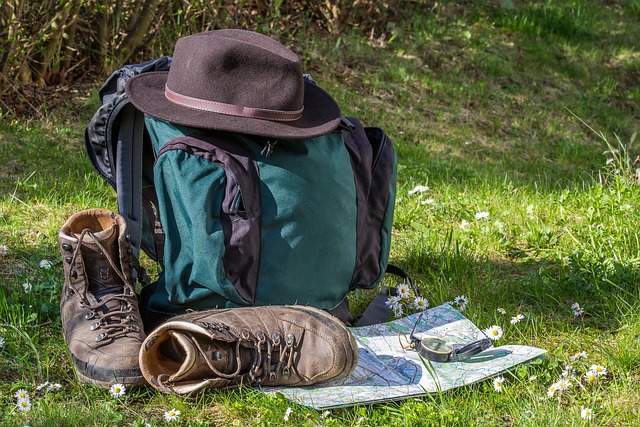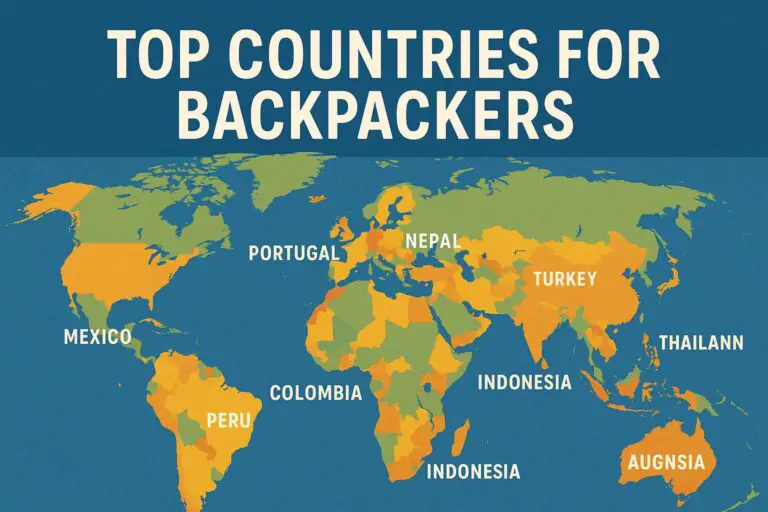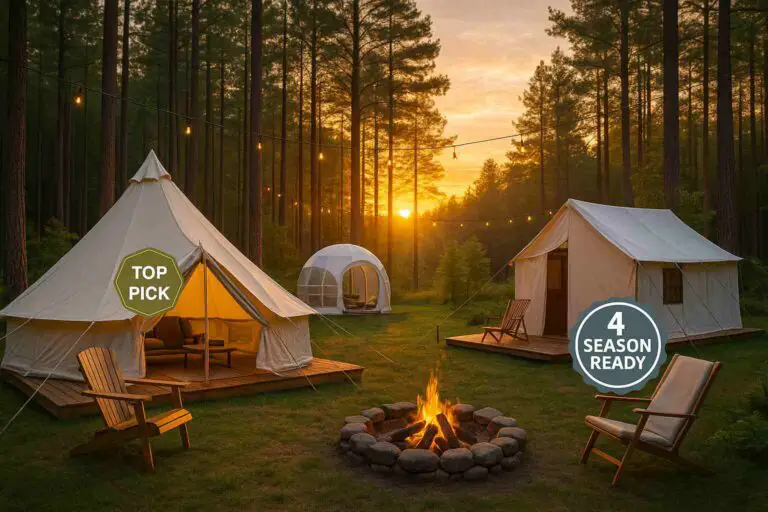Are you planning a backpacking trip and wondering how to choose the right camping gear? One of the most critical factors to consider is the weight and size of your gear. Lightweight and compact gear can make a significant difference in the comfort and ease of your backpacking experience. In this article, I will provide you with a comprehensive guide on how to choose the best lightweight and compact camping gear option for your backpacking adventure.
I will also cover the essential gear you need for backpacking, including the backpack, tent, sleeping bag, cooking gear, and clothing. Read on to learn about the benefits of lightweight and compact gear and how to choose the right options for your backpacking trip.
Choosing a Lightweight and Compact Backpack
When it comes to backpacking, the backpack is one of the most important pieces of gear. It needs to be sturdy enough to carry all your essentials while being comfortable enough to wear for long periods. Here are some factors to consider when choosing a lightweight and compact backpack:
- Size and capacity: Choose a backpack that is the right size for your body and has enough capacity for your gear. A backpack that is too big can be cumbersome, while a backpack that is too small may not fit all your essentials.
- Weight: A lightweight backpack will make it easier to carry your gear over long distances. Look for backpacks made from lightweight materials, such as nylon or polyester.
- Comfort: Choose a backpack with adjustable straps and a comfortable back panel. The backpack should fit snugly against your back, with the weight distributed evenly.
- Durability: A backpack made from durable materials will withstand wear and tear on the trail. Look for backpacks with reinforced seams and heavy-duty zippers.
- Features: Look for backpacks with features that meet your specific needs, such as hydration systems, multiple compartments, and external attachment points for gear.
When selecting a backpack, try on several options to ensure a good fit. It is also helpful to test the backpack with some weight in it to ensure it feels comfortable and balanced. With the right backpack, you’ll be able to carry your gear with ease while enjoying your backpacking adventure.
Choosing a Lightweight and Compact Tent
Choosing the right lightweight and compact tent for backpacking is crucial to staying comfortable and protected from the elements. Here are some factors to consider when selecting a backpacking tent:
- Weight: Look for a lightweight tent that won’t add too much weight to your pack. Tents made with lightweight materials such as silnylon, cuben fiber, or polyester are ideal for backpacking.
- Size: Consider the number of people who will be sharing the tent, as well as the interior space needed for gear. Backpacking tents come in various sizes, so choose a size that suits your needs.
- Durability: The tent needs to be sturdy enough to withstand wind, rain, and other weather conditions. Look for tents made from durable materials with sturdy zippers and seams.
- Ease of setup: Choose a tent that is easy to set up and take down. Freestanding tents are easier to set up and can be moved around if necessary.
- Ventilation: Good ventilation is essential to prevent condensation inside the tent. Look for a tent with mesh panels or windows that can be opened to allow for air circulation.
- Packed size: Choose a tent that packs down small enough to fit in your backpack. Tents with a compact packed size will save space and weight in your backpack.
When selecting a tent, consider all these factors and determine which features are most important to you. Ultimately, you want a tent that is lightweight, durable, and easy to set up, providing a comfortable and safe shelter for your backpacking adventure.
read this other article I wrote to better understand tent materials and design features.
Choosing a Lightweight and Compact Sleeping Bag
Choosing the right sleeping bag is essential for staying warm and comfortable on your backpacking trip. Here are some factors to consider when selecting a lightweight and compact sleeping bag:
- Temperature rating: Choose a sleeping bag with a temperature rating that matches the expected conditions of your backpacking trip. Sleeping bags are typically rated for different temperature ranges, so make sure to select a bag that will keep you warm in the expected weather.
- Weight: Look for a lightweight sleeping bag that won’t add too much weight to your pack. Sleeping bags made with lightweight materials such as down or synthetic insulation are ideal for backpacking.
- Size: Consider the length and width of the sleeping bag. Choose a bag that fits your body size and provides enough space for you to move comfortably.
- Durability: The sleeping bag needs to be durable enough to withstand regular use on the trail. Look for sleeping bags made from high-quality materials with sturdy zippers and seams.
- Packability: Choose a sleeping bag that packs down small enough to fit in your backpack. Sleeping bags with a compact packed size will save space and weight in your backpack.
- Shape: Sleeping bags come in various shapes, including mummy and rectangular. Mummy-shaped bags are more lightweight and compact, while rectangular bags provide more room to move around.
Consider all of these factors when selecting a sleeping bag for your backpacking adventure. Ultimately, you want a sleeping bag that is lightweight, durable, and will keep you warm and comfortable throughout the night.
Choosing Lightweight and Compact Cooking Gear
Cooking gear is an essential part of any backpacking trip, and selecting the right lightweight and compact cooking gear will save space and weight in your backpack. Here are some factors to consider when choosing cooking gear for backpacking:
- Stove type: Backpacking stoves come in various types, including canister stoves, liquid fuel stoves, and wood-burning stoves. Consider the type of fuel you will have access to and choose a stove that is lightweight and compact.
- Pot size: Choose a pot that is the right size for your needs. A pot that is too big will add unnecessary weight to your backpack, while a pot that is too small won’t be able to cook enough food.
- Material: Look for cooking gear made from lightweight materials such as titanium or aluminum. These materials are durable and lightweight, making them ideal for backpacking.
- Accessories: Consider the accessories you will need, such as a spatula, utensils, and bowls. Look for lightweight and compact accessories that will fit easily in your backpack.
- Efficiency: Choose cooking gear that is efficient and has a fast boiling time. This will save you fuel and time on the trail.
- Cleaning: Look for cooking gear that is easy to clean and won’t require much water. Consider using biodegradable soap and a scrub brush to clean your gear.
When selecting cooking gear, consider all these factors and determine which features are most important to you. Ultimately, you want cooking gear that is lightweight, durable, efficient, and easy to clean, providing you with the necessary tools to prepare meals on your backpacking adventure.
Choosing Lightweight and Compact Clothing
Choosing the right clothing is essential for staying comfortable and protected on your backpacking trip. Here are some factors to consider when selecting lightweight and compact clothing for backpacking:
- Material: Look for clothing made from lightweight and breathable materials such as merino wool, polyester, or nylon. These materials wick away moisture and dry quickly, keeping you comfortable on the trail.
- Layering: Choose clothing that can be layered, allowing you to adjust to changing weather conditions. A base layer, mid-layer, and outer layer will keep you warm and protected in different weather conditions.
- Sun protection: Look for clothing that provides sun protection, such as long-sleeved shirts and hats. This will help prevent sunburn and protect your skin from harmful UV rays.
- Comfort: Choose clothing that fits well and is comfortable to wear for long periods. Avoid clothing that is too tight or too loose, as it can restrict movement or cause chafing.
- Versatility: Choose clothing that can be worn in different situations. For example, a pair of convertible pants can be worn as shorts or pants, providing versatility for changing weather conditions.
- Packability: Look for clothing that packs down small and doesn’t take up too much space in your backpack. This will save weight and space in your backpack.
When selecting clothing for your backpacking trip, consider all of these factors and determine which features are most important to you. Ultimately, you want clothing that is lightweight, durable, comfortable, and provides adequate protection from the elements.
Conclusion
Choosing lightweight and compact camping gear is essential for a comfortable and enjoyable backpacking experience. The right gear can make a significant difference in the weight and space of your backpack, making it easier to carry all your essentials. When choosing camping gear for backpacking, it’s essential to consider the weight, size, durability, comfort, and versatility of the gear.
In this guide, I have covered the essential gear you need for backpacking, including the backpack, tent, sleeping bag, cooking gear, and clothing. I’ve provided you with factors to consider when selecting each piece of gear and tips on how to choose the right gear for your backpacking adventure.
By choosing the right lightweight and compact gear, you can reduce your load and enjoy your backpacking adventure with ease. So, go out there and explore with the right camping gear, and have a safe and memorable trip!








